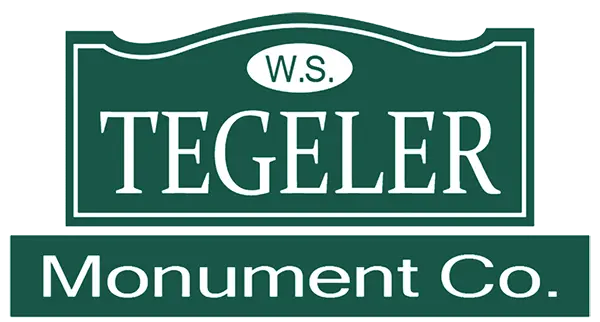Losing a loved one is an emotionally challenging experience, and while grieving is essential, there are also practical matters to attend to in the aftermath of a funeral. Post-funeral planning involves addressing legal and financial issues, ensuring the smooth settlement of the deceased’s estate, and preserving their legacy. In this comprehensive guide from Tegeler Monument Company, we will delve into the crucial steps and considerations for estate settlement and navigating the legal aspects that follow the loss of a loved one.
Understanding Estate Settlement
Estate settlement is the process of distributing a deceased person’s assets and liabilities according to their wishes and the applicable laws. It is a critical step in ensuring that the deceased’s affairs are handled appropriately and that their legacy is preserved.
The Executor’s Role
The executor plays a crucial role in managing and settling the estate of the deceased. Their responsibilities include:
- Gathering Assets: The executor is responsible for locating and collecting all of the deceased’s assets, including bank accounts, investments, real estate, and personal property.
- Paying Debts and Taxes: They must identify and settle any outstanding debts and taxes owed by the deceased, ensuring that creditors are paid appropriately and in the correct order.
- Distributing Assets: The executor is tasked with distributing the remaining assets to the beneficiaries according to the deceased’s wishes as outlined in legal documents like a will or trust.
- Managing Legal Documentation: They are responsible for organizing and managing all legal documents related to the estate, including wills, trusts, and advance directives.
- Accounting and Reporting: Keeping detailed records of all financial transactions related to the estate and providing periodic reports to beneficiaries or the court when required.
Legal Documentation
Legal documents, such as the following, play a fundamental role in guiding the estate settlement process:
- Wills: A last will and testament is a document that outlines the deceased’s wishes regarding asset distribution, appointment of an executor, and the care of dependents or pets. Having a will in place helps ensure that the deceased’s intentions are followed precisely. Additionally, wills can include provisions for funeral preplanning, allowing individuals to specify their preferences for memorialization, burial, or cremation.
- Trusts: Trusts are versatile legal instruments that can serve various purposes, including asset management and distribution. They allow for assets to be held, managed, and distributed according to specific terms and conditions set by the deceased.
- Advance Directives: Advance directives, including living wills and durable powers of attorney for healthcare, are crucial for making medical decisions when the your loved one is unable to communicate their wishes.
Initiating the Estate Settlement Process
Obtaining a Death Certificate
Obtaining a death certificate is one of the initial and most crucial steps in estate settlement. The process often consists of the following:
- Contacting the appropriate authority
- Providing necessary information
- Requesting multiple copies
- Paying the required fees
- Waiting for processing
- Collecting the death certificates
Identifying and Contacting Beneficiaries
Identifying and locating beneficiaries named in the deceased’s will or other legal documents is a critical step in the estate settlement process. It ensures that the deceased’s wishes are communicated and that beneficiaries are aware of their inheritance. To do this effectively, you should gather contact information for each beneficiary and communicate with them promptly. Clear and timely communication fosters transparency and minimizes potential misunderstandings among heirs.Top of Form
Asset Inventory and Valuation
Creating an inventory of the deceased’s assets is also an important estate settlement step. This process involves listing various assets, such as bank accounts, investments, real estate, personal property, and more. Professional appraisals may be necessary for some assets to determine their value accurately.
Paying Debts and Taxes
It is the executor’s responsibility to identify and settle the deceased’s outstanding debts and taxes. This includes understanding the order of priority for debt payment and ensuring that the estate covers these obligations. Here’s a breakdown of debt payment priority:
- Funeral and burial expenses, such as headstones or cremation costs
- Secured debts (e.g., mortgage or car loan)
- Unsecured debts (e.g., credit card debt)
- Estate administration expenses
- Taxes
Legal Matters in Estate Settlement
Estate Taxes
Estate taxes are a critical consideration. Familiarize yourself with federal and state thresholds for taxable estates, as exceeding these thresholds can lead to substantial tax liabilities. Seek professional tax advice to explore strategies for minimizing estate tax liability, which may include gifting, trusts, and other financial planning tools.
Will Contests and Disputes
Be aware of the possibility of will contests or disputes among beneficiaries. Understand the legal grounds for challenging a will, which may include allegations of undue influence, fraud, or lack of testamentary capacity. These disputes are typically resolved through legal proceedings, so being prepared for potential challenges is essential.
Distributing Assets and Preserving the Legacy
Asset Distribution
Asset distribution is a crucial step in estate settlement, involving the fulfillment of the deceased’s wishes and the terms of legal documents. It’s essential to follow the instructions precisely to ensure that beneficiaries receive their intended shares. Here are common assets often included in asset distributions:
- Cash and bank accounts
- Investment portfolios
- Real estate properties
- Personal property (e.g., jewelry, artwork, collectibles)
- Vehicles
- Business interests or ownership
- Life insurance proceeds
- Retirement accounts (e.g., 401(k), IRA)
- Digital assets and intellectual property
Estate Administration Expenses
Estate administration expenses, including legal fees and executor’s fees, are important considerations during estate settlement. Typically, these costs are paid from the estate’s assets. It’s essential to account for these expenses, as they can impact the overall value of the estate and the assets available for distribution to beneficiaries.
Seeking Professional Guidance
Hire Legal and Financial Advisors
Seeking professional advice from attorneys, accountants, and financial advisors is critical. These experts provide invaluable guidance to ensure compliance with laws, optimize financial outcomes, and streamline the process.
Seek Emotional Support
Estate settlement can take an emotional toll on family members and beneficiaries. It’s crucial to acknowledge these emotional burdens and encourage individuals to seek emotional support, whether through counseling, support groups, or talking with trusted friends and family.
Work with a Monument Company
Beyond legal and financial considerations, working with a local headstone and/or monument company can be an essential part of post-funeral planning. Monument companies specialize in creating lasting tributes to commemorate the lives of loved ones. Whether you need a custom-designed monument, headstone, or memorial marker, they can guide you through the process of selecting and designing a meaningful and personalized memorial. This allows you to preserve your loved one’s memory and legacy in a tangible and lasting way, providing comfort and solace to those left behind.
In Conclusion
Navigating the legal and financial aspects of estate settlement can be a complex and emotional journey. However, with the right knowledge and guidance, you can ensure that your loved one’s legacy is preserved, their wishes are honored, and the estate settlement process proceeds smoothly.
Contact Tegeler Monument Company for Monument Design and Installation
At Tegeler Monument Company, our dedicated team specializes in providing expert monument design and installation services in Maryland and beyond. Whether you need a custom-designed monument or a beautifully crafted headstone, we are here to help. Contact us to get started today.


Comments are closed